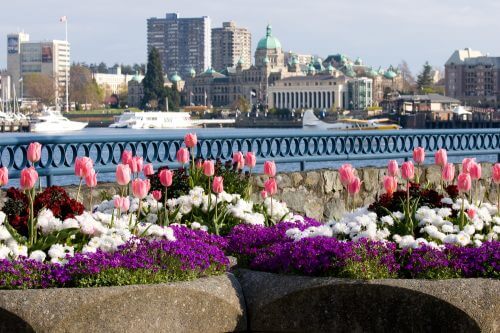Today, when oil and gas prices are low, it is time to impose taxes on mineral fuels

Editors of Scientific American International Edition
In British Columbia, air pollution is decreasing and the economy is growing. In this province of Canada, a tax was imposed in 2008 on fossil fuel users, from companies that provide a service to the public to private car drivers. Since then, its economy has grown by an average of 2% per year, despite a major national recession during 2009, more than any other province in Canada. The use of gasoline, coal and other carbon-based fuels decreased during the period by 16% while reducing the emission of polluting greenhouse gases. The tax imposed today is 30 Canadian dollars per ton. In return, companies and individuals receive relief in income tax and other tax areas.
British Columbia inherited this idea from its neighbor, oil producer Alberta. The time has come for the US to imitate these two Canadian provinces and charge a price for carbon pollution. The prices of coal, gas and oil are so low now that even with added tax, fuel costs will remain lower than what US residents and its commercial companies paid just a few years ago.
This is a basic market economy: set a monetary value for the use of sky, and people will stop seeing it as a free dump. This idea has deep roots. Economist Arthur Pigot suggested in 1920 that if polluters were forced to pay for the air they abuse, they would be less likely to use it heavily, as taxing alcohol and tobacco did. Years later, the late economist Ronald Coase, winner of the 1991 Nobel Prize in Economics, refined Pigot's idea. He proposed that governments sell legal rights to pollute to companies or individuals, thus creating a pollution market. Anyone will be able to compete for the purchase of these allowances, and the competition will raise the price of the polluted air. Coase's idea convinced even Milton Friedman, the icon of economic conservatism, that trading, buying and selling pollution rights was a sensible way to deal with environmental disasters.
Later, the US used such a market mechanism to combat a particular pollution problem: acid rain. In the 90s, the administration of George Bush Sr. imposed a total cap on the amount of sulfur dioxide gas, whose molecules are responsible for creating the harmful precipitation, that US power plants were allowed to emit from their stacks. Portions of this amount were distributed among the polluters. The owners of the power plants could be satisfied with the amount approved for them by installing technologies to clean their emissions or switch to a less polluting fuel. Or they could spend the money to increase their cap by buying rights from other polluters who have already cut their emissions.
In order to deal with another problem, carbon dioxide emissions, nine states in the North-East of the USA have implemented a similar program of trading quotas on power plants. California expanded to include vehicles in its plan, as did the European Union. But attempts to expand the program nationally in the US failed. Opponents saw the plan as a hidden tax that its imposition on companies would cause job losses.
A more direct approach, the imposition of a carbon tax, may yield direct benefits to business owners without increasing the total tax burden imposed on them. In British Columbia, for example, the carbon tax replaces other taxes. For example, a tax at the rate of $25 per ton imposed on the use of coal, gas, and oil may raise more than $100 billion that could be offset with taxes imposed on workers' wages, increase credit points, fund innovative research, fund infrastructure improvements, or be used in a combination of these options . For this reason, the proposal won the support of economists from various currents, including N. Gregory Mankiv, who served as an advisor to Republican President George W. Bush, and Lawrence Summers, who advised Democratic President Barack Obama. The tax will also not hurt consumers. In British Columbia, the tax currently imposed at gas stations increases the price of a liter of gasoline by only about 7 Canadian cents.
And if the word "tax" still scares the politicians too much, there is also another, more indirect way to establish a decent carbon market: stop spending taxpayers' money on fossil fuel subsidies. According to the International Monetary Fund, governments around the world are spending more than half a trillion dollars to make coal, gas and oil cheaper, both for the companies that search for them and for the consumers that burn them. These "gifts" make the fossil fuel seem falsely cheap. Any approach that stops the concealment of the true price, whether through taxes or quotas or through subsidy reform, will be beneficial for cleaning the air.

2 תגובות
There is no shortage of pollutants in the world. At least in pest control you will act wisely.